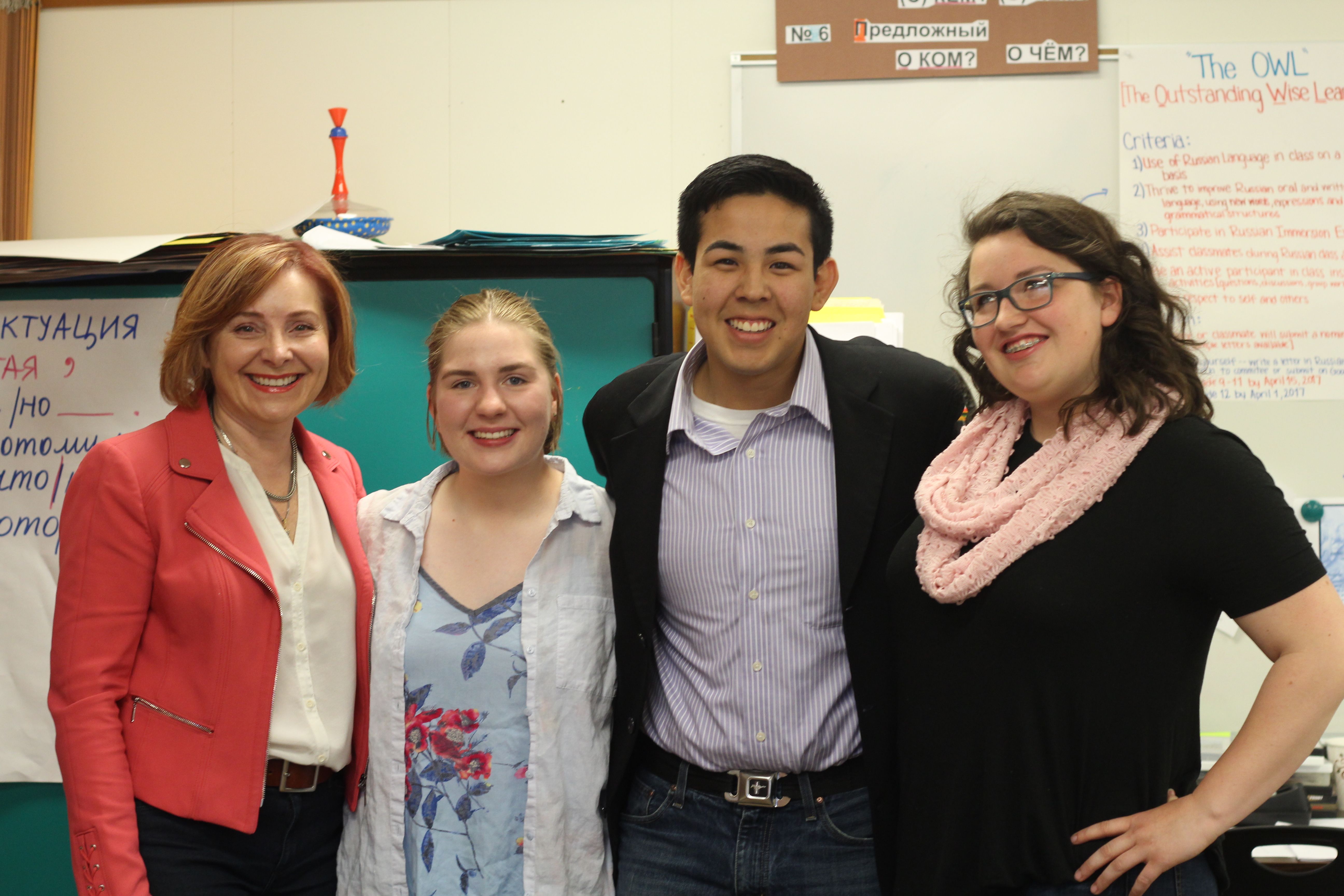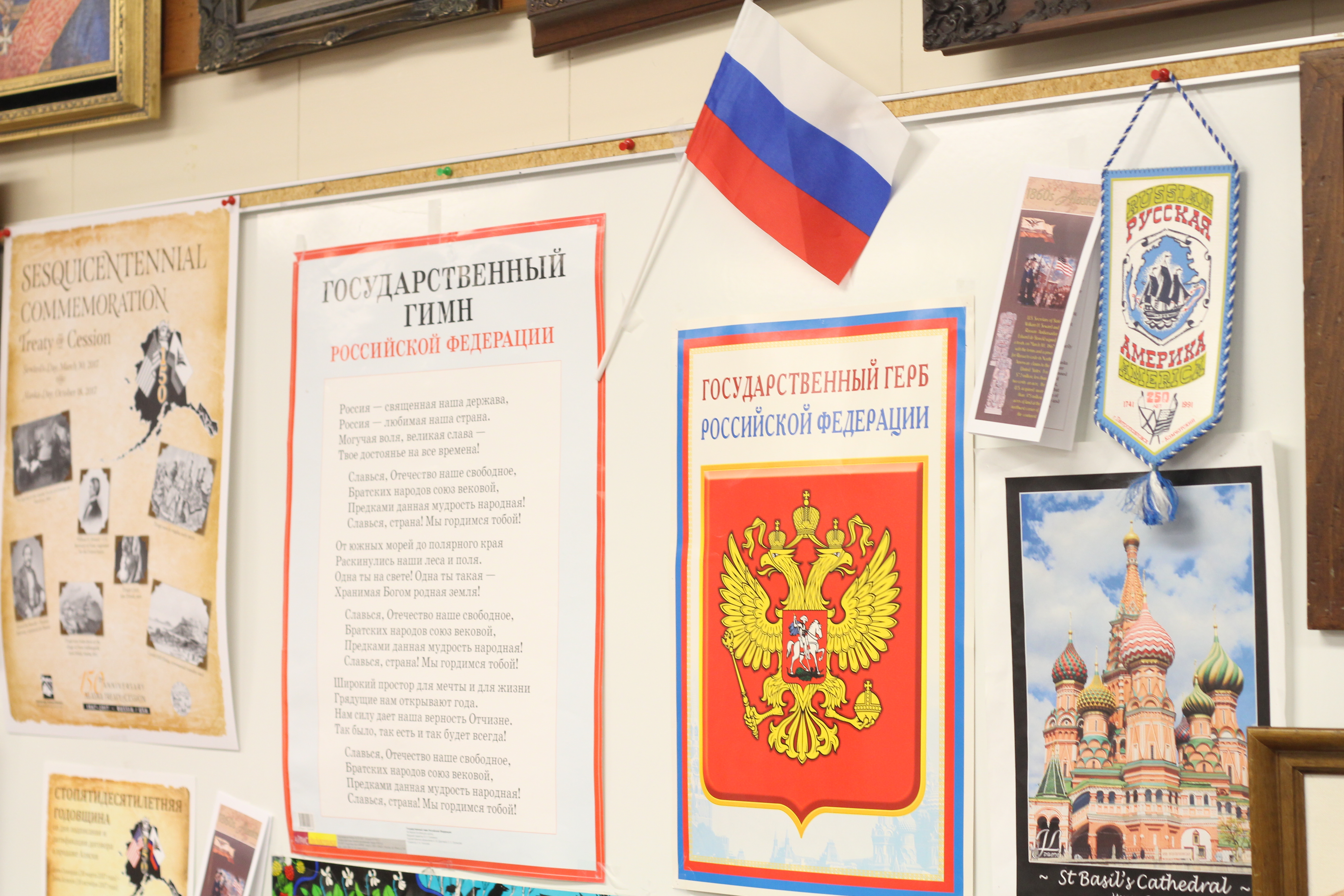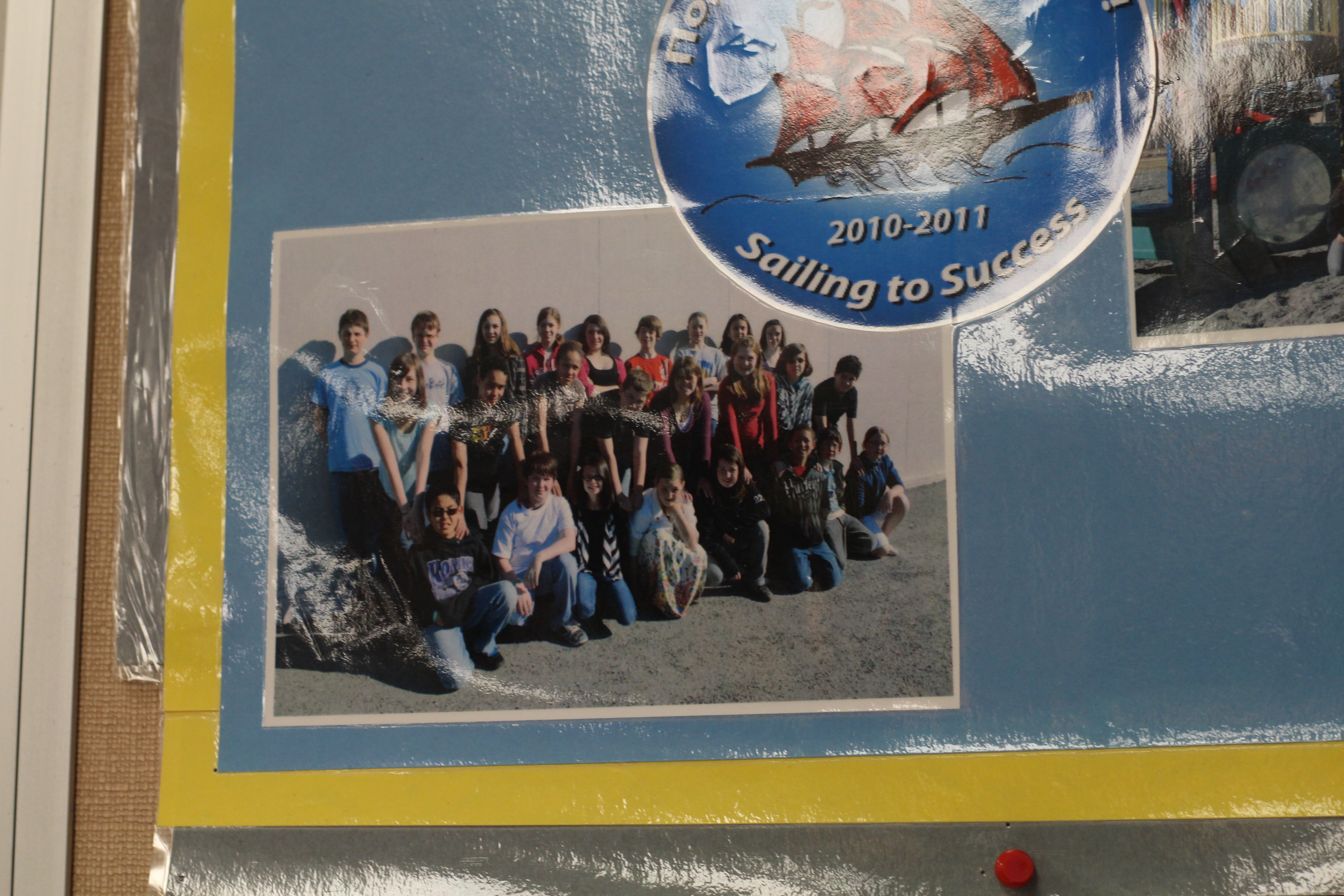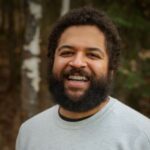
On Wednesday, as West Anchorage High School students walked down the aisle of the Sullivan Arena, they filed into their seats, waiting patiently for diplomas they had worked for the last four years to receive. But for 17 of the students, they had received scholastic recognition at a ceremony two weeks earlier.
They were first batch of students to spend their entire educational lives in a Russian language immersion program at West Anchorage High School last night. The students were the first in the nation to complete the program — attending classes in Russian from kindergarten to the 12th grade. The program was designed for American students specifically so they could learn Russian from a young age, four to five.
Elena Farkas is the teacher in charge of the immersion program. She’s known these students for most of their lives. She says that when the program began there were language courses for Russian, but none of them as robust.
“We already had high school programs. We already had middle school programs,” Farkas said. “The only component that was missing was elementary component. And when the Anchorage School District applied for the FLAP grant, we received it. And we started. From all of the states, we’re the only ones who received that grant.”
The grant allowed for a Russian language lottery system to be set up that fed students from Turnagain Elementary into Romig Middle School and finally through West Anchorage High School. Parents would enter their kids into the lottery and those selected would go through the 13 year program.

In fact, the first name picked from the lottery 13 years ago, graduated high school yesterday. His name is Wesley Piscoya.
Piscoya’s parents entered him into the Russian language lottery at a time when the family contemplated whether to stay in Anchorage or move to Soldotna for work.
“My mom said, ‘Well let’s just put Wesley into the lottery for here.’ She was really praying hard to God, ‘You need to show us a sign. You need to really show us where you want us,'” Piscoya said. “They got a call a couple weeks later saying, ‘Well, Wesley got into the program.’ And mom’s like, ‘Great. I guess we’re staying here.’ And then at the very end of the conversation they said, ‘Oh yeah, by the way. Wesley was pulled first.'”
Piscoya said the family took that as a very clear sign. During the many years he was in the program, Piscoya said that his classmates became more than faces he saw each day.
“You’ve know them for 13+ years, so it’s very much a family,” Piscoya said. “I know I can come to these guys with any problems that I might have with any part of my life. If I have homework problems or social problems.”
Building a community was a huge benefit to another of the immersion program’s students, Anastasia Erikson. Erikson’s family is Russian and she’s originally from Tok. They moved to Anchorage for better educational opportunities.
“We didn’t really have any friends here, or any family, and so we figured we should hop into this program,” Erikson said. “My mom was a teacher at Tok, so teaching Russian was a given for her, and it would be a great place for us to start a community and start to get to know people. Coming into something that’s Russian, something that we were comfortable with as a family.”
Erikson said beyond the intrinsic benefit of learning another language, she found that it also helped her in other classes.
“I found that as I continued the program, I’ve gotten better at math,” Erikson said. “And there are studies that show that if you have a different language, your brain will work in different ways and it will open up to information easier.”

Erikson, Piscoya and fellow student Parker Roy all have siblings who are also in the Russian program. Roy said the program has given her opportunities to both practice learning and teach.
“I have three younger siblings who are all in the program as well,” Roy said. “So between homework and stuff, my parents… I’ll be up in my room and they’ll say, ‘Parker. Help! We don’t know what this means.’ And I have to come down and tell them how to do the homework and help my little brother.”
Neither of Roy’s parents speak another language and they wanted her to have as many opportunities as possible. She said she found the whole program to be wonderful, and she’s interested in speaking more than just Russian and English.
“I took Spanish freshmen year. And my teacher said I was really good at it,” Roy said. “I didn’t fully agree, because I’d get confused with my English and my Russian — er my Spanish and my Russian. And I’d have a question for my teacher and I’d plan out what I wanted to say, and then I’d go to ask him and I’d say it in Russian.”
When asked by Ms. Farkas — in Russian, of course — what their post-high school plans are, Parker said she has dreams of being trilingual and becoming a diplomat after going to the University of Montana. Wesley plans on working in criminology following his time at UAF in Fairbanks. Anastasia will attend UAS in Juneau where she wants to learn Tlingit and become an archaeologist. All three plan on using their Russian now that high school has ended.
Ms. Farkas said all of her immersion classes have been filling up every year since the program started.
Wesley Early covers Anchorage life and city politics for Alaska Public Media. Reach him at wearly@alaskapublic.org and follow him on X at @wesley_early. Read more about Wesley here.





